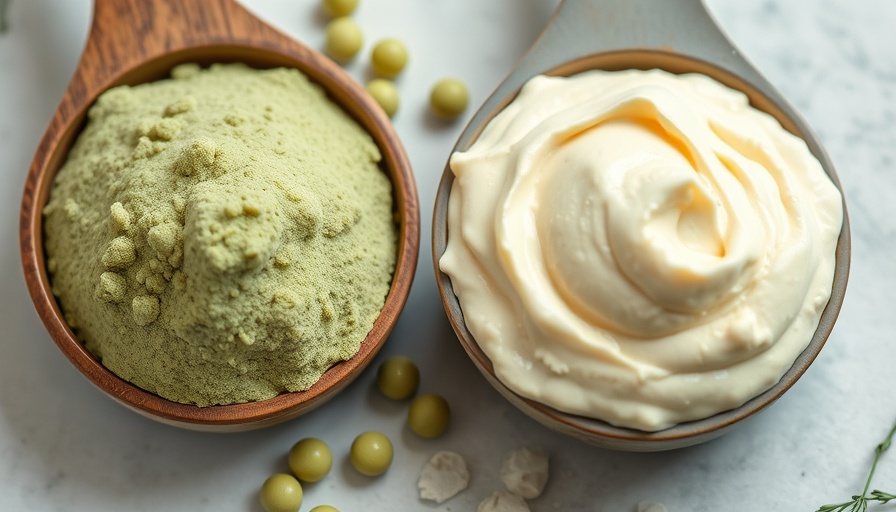
Whey Protein vs. Pea Protein: Finding the Right Fit for Your Diet
As you embark on your journey toward healthier eating, you might find yourself pondering the benefits of two popular protein sources: whey protein and pea protein. With both touted for their nutritional advantages, understanding their unique qualities can guide you toward making an informed choice that aligns with your lifestyle and health goals.
Nutritive Differences: What Sets Them Apart?
Whey protein, derived from dairy during cheese production, is praised for its complete amino acid profile, making it a favorite among athletes and fitness enthusiasts. Its rapid absorption can aid muscle recovery after strenuous workouts, supporting a balanced nutrition plan.
In contrast, pea protein is a plant-based option that appeals to those adopting a holistic nutrition approach or those with dietary restrictions like lactose intolerance. It’s an excellent source of iron and has been linked to benefits such as improving heart health and promoting gut health due to its fiber content.
The Sustainable Choice: Plant-Based Considerations
If sustainable eating is a priority for you, pea protein is a champion in the environmental department. Its production requires less water and land compared to animal-based proteins, contributing to lower greenhouse gas emissions. Such considerations become vital in a world where our choices impact the planet.
A Unique Approach to Healthy Eating
When deciding between whey and pea, it's essential to consider not only the nutritional profile but also your digestive comfort and personal ethics. A diverse, balanced diet that incorporates various nutrient-rich foods can promote longevity and optimal health, so blending both whey and pea protein might be advantageous for maximum benefits.
Bringing It All Together
Ultimately, whether you choose whey protein for its quick absorption or pea protein for its vegetarian benefits, both can serve you well when integrated into a clean eating pattern. Don’t forget that variety is key—exploring different sources of protein can make your meals exciting and nutritious.
Ready to choose the best protein for your health? Contact us today at 984-238-6164 or email us at tom@mywellnesstrain.com to find out more about integrating functional foods into your diet!
 Add Row
Add Row  Add
Add 




Write A Comment